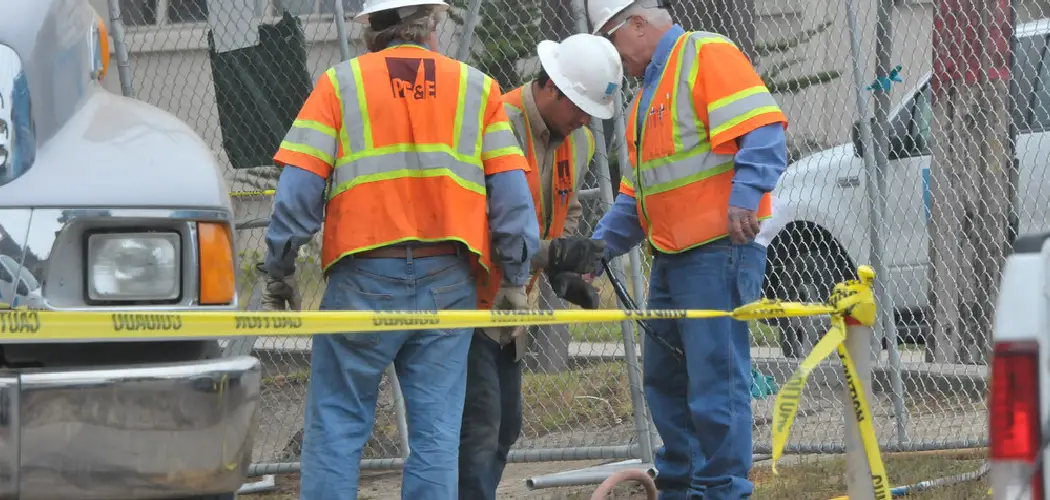Do you ever worry about your home’s safety from hazardous gas leaks? A gas leak in the home can have catastrophic health risks and potential financial implications, so it’s no wonder that homeowners are concerned.
In this blog post we’ll be discussing how do gas leaks happen and what steps you should take to keep yourself safe. We’ll also dive into the different types of gases generally found in residential homes, and how these potentially dangerous substances can show signs of leakage.
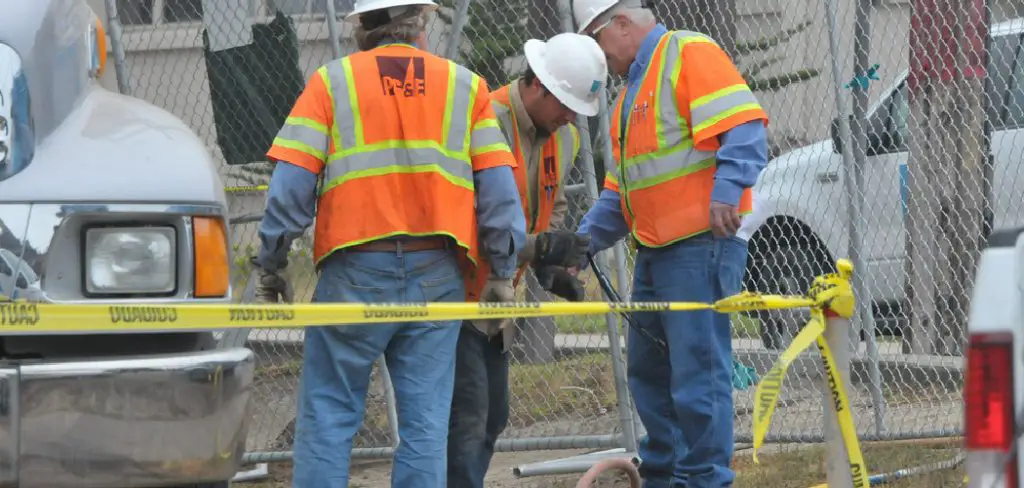
Our readers will come away with a better understanding of why preventive measures must be taken as well as correct detection solutions to identify a possible problem early on. Whether it’s making sure piping is maintained by experienced professionals or knowing when carbon dioxide detectors need replacing – putting your family at ease shouldn’t be something you take lightly!
How Do Gas Leaks Happen (15 Reasons)
1 . Corrosion
Gas leaks can happen due to corrosion of the gas pipes. Over time, gas pipes may start to erode and rust, causing small holes or cracks. These tiny openings provide an escape route for natural gas, leading to potential hazards. Also, corrosion can happen due to contact with water or other substances.
2 . Poor Installation
Improper installation of gas pipes can also lead to leaks. If the fittings and connections are not securely attached, it can cause small openings for gas to escape. Professionals should always handle the installation of gas pipes to ensure safety.
3 . Natural Disasters
Natural disasters such as earthquakes, hurricanes, and tornadoes can cause gas leaks by damaging the pipelines. The force of these disasters can shift or break gas pipes, creating openings for gas to seep out. It is crucial to check for any damage after a natural disaster and call professionals if needed.
4 . Accidental Damage
Accidents caused by digging or construction work near gas pipelines can also cause leaks. The force of heavy machinery or tools can damage the pipes, leading to gas leaks. Always be cautious when conducting any type of work near gas pipelines and call professionals if you suspect damage.
5 . Wear and Tear
Just like any other material, gas pipes can wear out over time due to constant use. As they age, they become weaker and more prone to leaks. Regular maintenance and inspections can help detect any signs of wear and tear in gas pipelines.
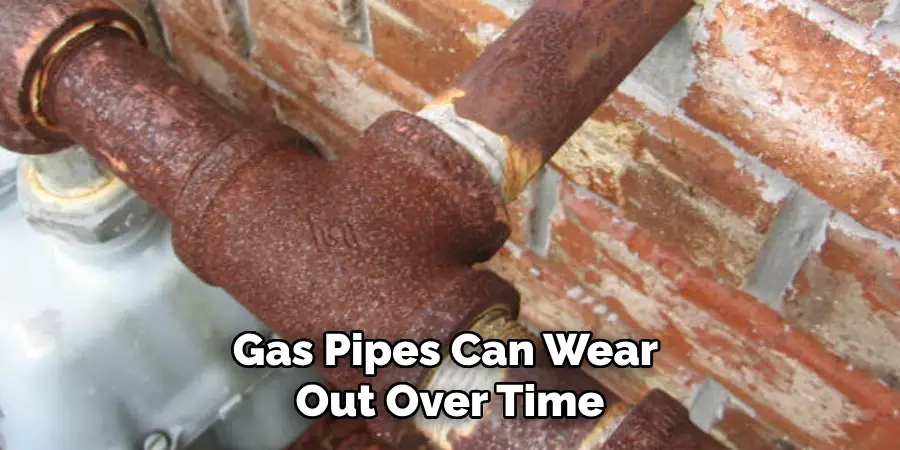
6 . Poor Maintenance
Lack of proper maintenance can also lead to gas leaks. If gas pipes are not regularly checked and maintained, small issues can escalate into major problems over time. It is essential to have a maintenance schedule in place for gas pipelines.
7 . Extreme Temperatures
Extreme temperatures, both hot and cold, can cause gas pipes to expand or contract. This constant change in size can weaken the pipes and create openings for gas to escape. Gas companies often use special materials that can withstand extreme temperatures, but it is still important to have regular inspections.
8 . Ground Movements
Ground movements, such as landslides or sinkholes, can also cause gas leaks. The force of these movements can damage the pipelines and create openings for gas to seep out. It is crucial to monitor any changes in ground conditions near gas pipelines.
9 . Poor Quality Materials
Using poor-quality materials in gas pipes can increase the chances of leaks. Cheaper materials may not be able to withstand the pressure and conditions of gas pipelines, leading to cracks and holes. It is important to invest in high-quality materials for gas pipelines to ensure their durability.
10 . Improper Maintenance by Homeowners
Homeowners who have gas appliances are responsible for maintaining them properly. If they fail to do so, it can lead to leaks. For example, if a gas stove is not regularly cleaned and maintained, it can cause gas to leak into the home. It is important for homeowners to follow proper maintenance guidelines provided by the manufacturers.
11 . Aging Gas Appliances
As gas appliances age, their parts may start to wear out and become less effective. This can increase the risk of leaks in these appliances. It is crucial to regularly check and maintain gas appliances to ensure they are working properly.
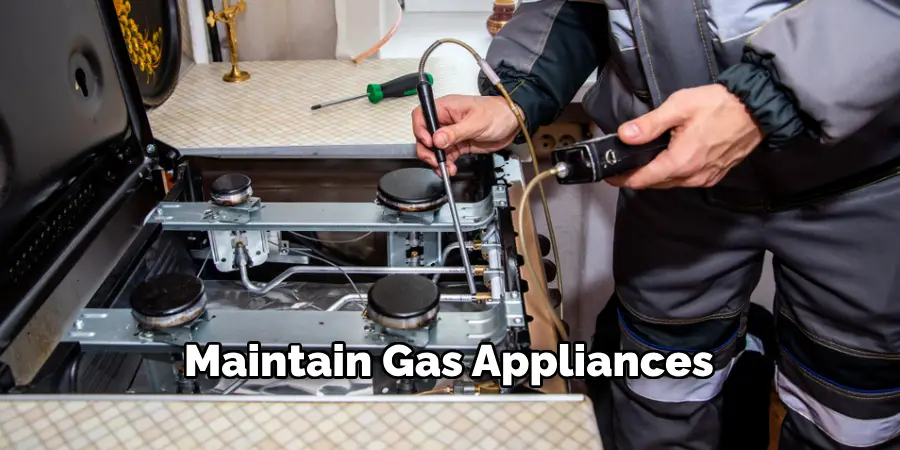
12 . Vandalism
Unfortunately, vandalism can also cause gas leaks. Deliberate damage to gas pipelines or equipment can lead to gas leaks and pose a significant threat. Gas companies often have security measures in place to prevent vandalism, but it’s important for the public to report any suspicious activity near gas pipelines.
13 . Poor Ventilation
Proper ventilation is crucial when using gas appliances. If there is not enough airflow, it can cause a buildup of natural gas, leading to leaks. It is important to ensure that all gas appliances have proper ventilation systems in place.
14 . Aging Infrastructure
The infrastructure for gas delivery, such as main pipelines and distribution lines, can also age and deteriorate over time. This can increase the risk of gas leaks in these systems. Gas companies regularly monitor and maintain their infrastructure to prevent leaks.
15 . Human Error
Human error, although rare, can also cause gas leaks. Mistakes made during installation or maintenance by professionals can lead to openings in gas pipes, causing leaks. Professionals must follow proper procedures and guidelines when working with gas pipelines.
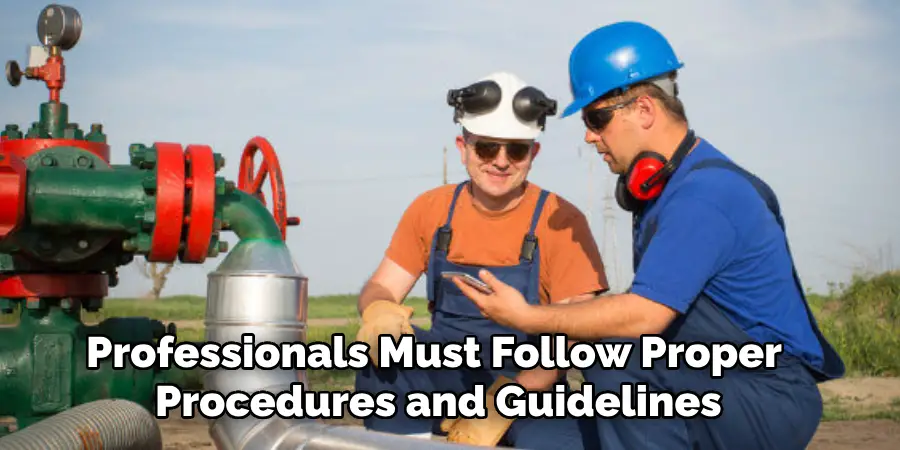
There are various causes of gas leaks, from natural disasters to human error. Individuals and companies need to take preventive measures such as regular maintenance and inspections to ensure the safety of gas pipelines. Ultimately, a combination of proper installation, maintenance, and monitoring can help prevent gas leaks from happening.
So, it is important to stay vigilant and address any potential issues promptly to avoid potential hazards. Remember, safety should always be a top priority when dealing with natural gas systems. Stay informed and take necessary precautions to keep yourself and others safe from gas leaks.
Frequently Asked Questions
What Precautions Should Be Taken To Prevent Gas Leaks?
Gas leaks are a major safety hazard that can cause both health and environmental concerns. While gas leaks can happen for a variety of reasons, the most common causes include faulty equipment or appliances, old or corroded pipes, and human error.
To prevent gas leaks from happening, there are some important precautions that you should take:
- Regularly check and maintain your gas appliances, such as stoves, ovens, and water heaters. Look for any signs of wear and tear, rust or corrosion, and ensure they are installed properly.
- Have a professional check your gas lines and pipes at least once a year for any leaks or potential issues. This is especially important if you live in an older home.
- Be cautious when digging in your yard or doing any construction work that involves digging near gas lines. If you are unsure of the location of gas lines on your property, contact your local utility company.
- Educate everyone in your household about the signs of a gas leak and what to do if they suspect one, such as smelling rotten eggs or hearing a hissing sound near a gas appliance.
- Install a carbon monoxide detector in your home to detect any gas leaks that may be odorless. Make sure to regularly test and replace the batteries.
- In case of a suspected gas leak, leave the area immediately and call your local utility company or emergency services. Do not use any electronic devices, light switches, or open flames until the all-clear is given.
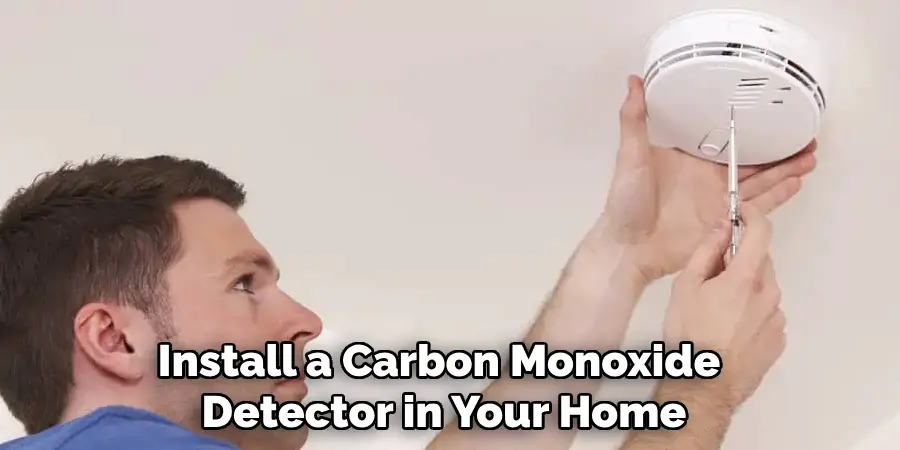
Can I Detect a Gas Leak on My Own?
While there are some signs of a gas leak that you can detect on your own, such as the smell of sulfur or rotten eggs, not all gas leaks have an odor. Some may only be detected through carbon monoxide detectors or by trained professionals using specialized equipment. If you suspect a gas leak, it is always best to err on the side of caution and follow the necessary safety precautions.
What Should I Do If I Suspect a Gas Leak?
If you smell gas or suspect a leak, do not try to locate or fix it yourself. Leave the area immediately and call your local utility company or emergency services for assistance. Do not use any electronic devices, light switches, or open flames until the all-clear is given. It is important to stay calm and follow the proper safety precautions to prevent any potential accidents or dangers.
Conclusion
In conclusion, gas leaks can happen for a variety of reasons, and it’s important to be aware of the signs and steps to prevent them. It’s essential that all homeowners, renters or landlords understand how gas leaks can occur and look out for potential problems. If you suspect something is wrong with your gas system or home, don’t hesitate to contact a professional right away. Doing so will save you substantial time and money in the long run.
Now you know how do gas leaks happen! For the health and safety of yourself, your family, and your neighbors make sure you have your gas pressure regularly checked, as well as upgrade older equipment when necessary.
It may take some effort but peace of mind knowing you are living in safe conditions is invaluable. Investing in a carbon monoxide detector might also provide an extra level of security against gas threats. Stay informed and be aware—safety is paramount when it comes to protecting against dangerous gas leaks.

